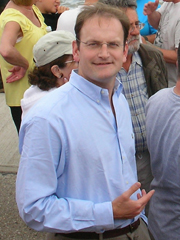Economics, ethics, and Krugman
Business Cycles, The LeftReading Paul Krugman is like picking at a scab: You know you should probably just let it alone, but there’s pleasure in picking the Krugman rough redness. So you read. So you bleed. So you flick away the droplets and the clots.
I could hardly avoid his recent post, “Economics and Morality,” in part because the title mirrors an abiding interest of mine, and of many libertarians. There is a deep connection between economics and ethics. After all, one is the science of human action and transactions, the other is the art of prescribing for same. Frank Knight observed that the subject of economics was the same as that of Herbert Spencer’s Principles of Ethics: “acts adjusted to ends,” or, to put simply, Human Conduct.
Krugman offers no insights about the deep connections. Instead, he regurgitates old pabulum about the welfare state, and misunderstands the case for free markets. Again.
He begins with a concern: “[T]he right is winning economic debates because people believe, wrongly, that there’s something inherently moral about free-market outcomes.”
I don’t know if this is the case, in the real world. Perhaps I don’t follow enough “debates.” But, as I see it, market outcomes are not moral as such. It’s market processes that are. That is, non-fraudulent, non-coerced exchanges (trade) — no matter how much error there may be in them — are more moral processes than fraudulent and coerced processes. It’s the means that are important, here. Fixating on the ends leads you into traps like Krugman seems to rest his whole ideology upon.
…
Economics, ethics, and Krugman Read Post »

